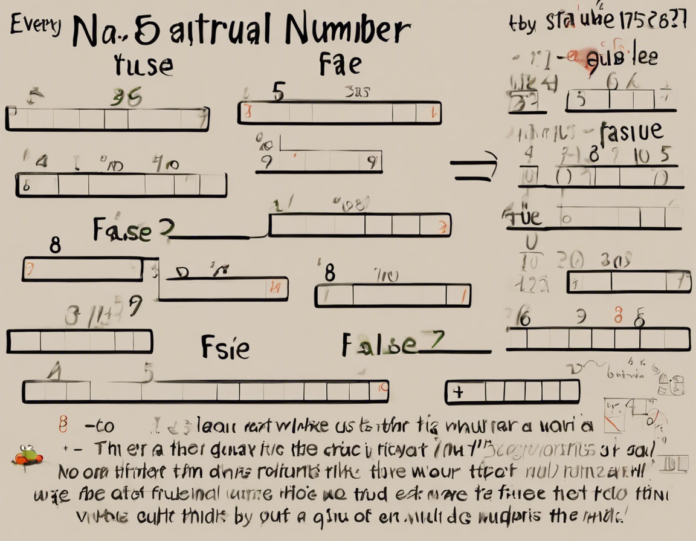When it comes to the classification of numbers, it's essential to understand the relationship between natural numbers and whole numbers. To shed light on the statement "Every natural number is a whole number: True or False?" we need to delve into the definitions and properties of these two types of numbers.
Natural Numbers
Natural numbers are also known as counting numbers and are the set of positive integers starting from 1 and extending infinitely: 1, 2, 3, 4, 5, ... and so on. They are the most fundamental form of numbers used for counting objects.
Whole Numbers
Whole numbers include all the natural numbers (1, 2, 3, 4, ...) as well as zero (0). They encompass the entire set of non-negative integers.
Relationship Between Natural and Whole Numbers
-
Inclusion: It's important to note that every natural number is indeed a whole number. Since natural numbers start from 1 and whole numbers include 0 along with natural numbers, it is true to state that every natural number is a whole number.
-
Subset Relationship: Natural numbers are a subset of whole numbers. This means that while every natural number is a whole number, not every whole number is a natural number. Specifically, natural numbers are whole numbers greater than zero.
-
Visual Representation:
- Natural Numbers: 1, 2, 3, 4, 5, ...
- Whole Numbers: 0, 1, 2, 3, 4, 5, ...
Key Differences
- Natural numbers do not include zero, while whole numbers do.
- Whole numbers encompass all non-negative integers, including natural numbers.
Summary
In conclusion, the statement "Every natural number is a whole number" is true. While natural numbers represent the set of positive integers, whole numbers extend this set to include zero as well. Understanding the relationship between these two types of numbers is essential in mathematics.
Frequently Asked Questions (FAQs)
Q1: Are negative numbers considered whole numbers?
A1: No, whole numbers only include non-negative integers, so negative numbers are not classified as whole numbers.
Q2: Can zero be considered a natural number?
A2: No, natural numbers start from 1 onwards, excluding zero. Zero is not considered a natural number.
Q3: Are decimals or fractions classified as whole numbers?
A3: No, whole numbers are specifically integers without any fractions or decimal points.
Q4: Why are natural numbers called counting numbers?
A4: Natural numbers are used to count objects or represent cardinality in counting. They start from 1, which represents a single object.
Q5: How do whole numbers differ from integers?
A5: Integers include both positive and negative whole numbers, as well as zero. Whole numbers do not include negative integers.
Q6: Do whole numbers play a role in everyday life?
A6: Yes, whole numbers are fundamental in various real-life applications, such as counting objects, numbering elements, and in mathematical operations.
Q7: Which set of numbers includes all types of numbers discussed?
A7: The set of real numbers includes all types of numbers like natural, whole, integers, fractions, decimals, irrational, and rational numbers.
Q8: Are prime numbers considered natural numbers?
A8: Yes, prime numbers, which are integers greater than 1 and have no positive divisors other than 1 and themselves, are considered natural numbers.
Q9: Can a number be both a natural and a whole number?
A9: Yes, any number that is a natural number is automatically a whole number as well because whole numbers include natural numbers along with zero.
Q10: How are natural and whole numbers used in mathematics?
A10: Natural numbers are used for counting and ordering, while whole numbers are applied in various mathematical operations and in scenarios where zero needs to be included, such as measurements or scores.
By understanding the distinctions between natural and whole numbers, one can appreciate the significance of each in mathematical contexts and applications.

